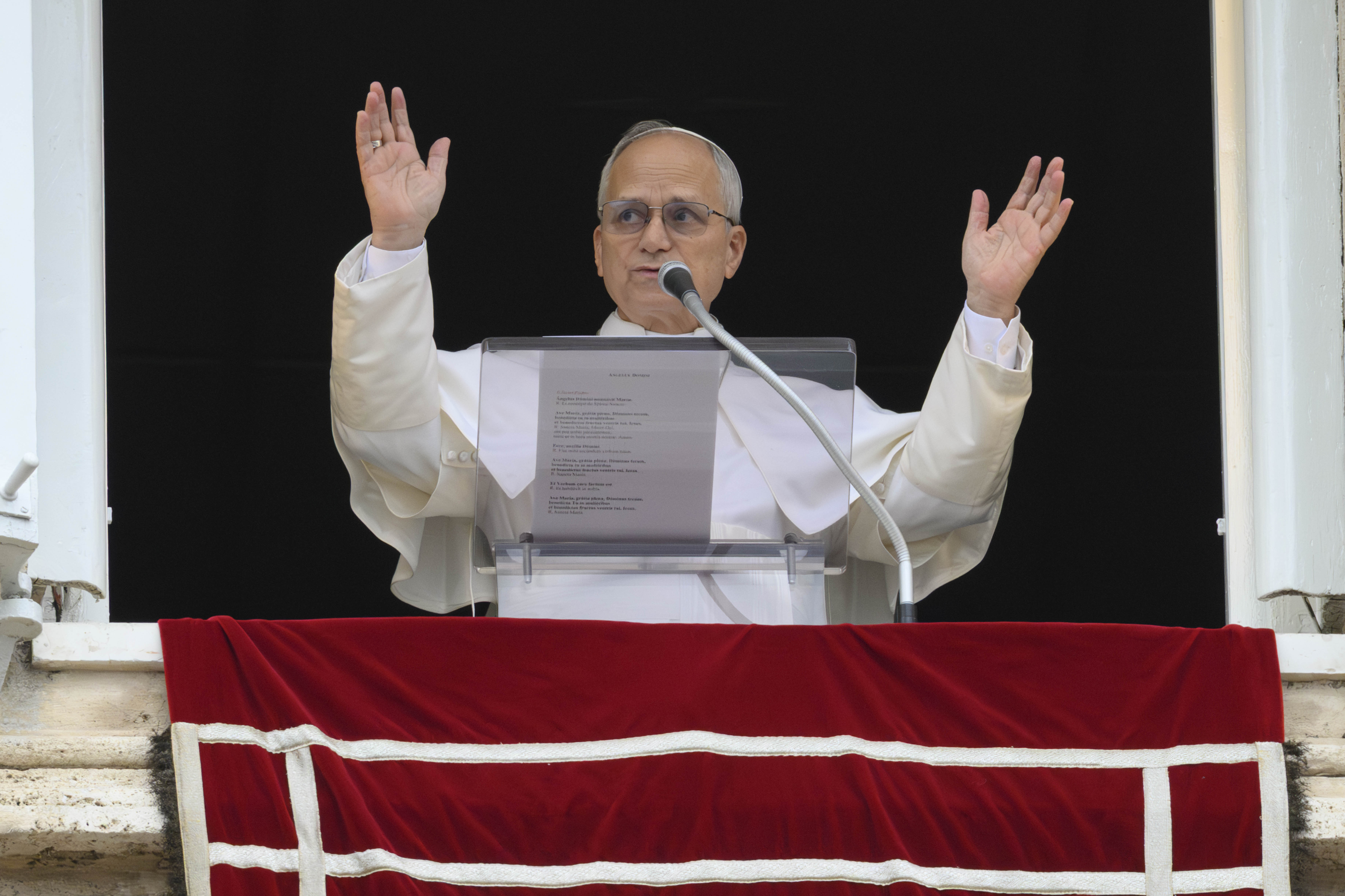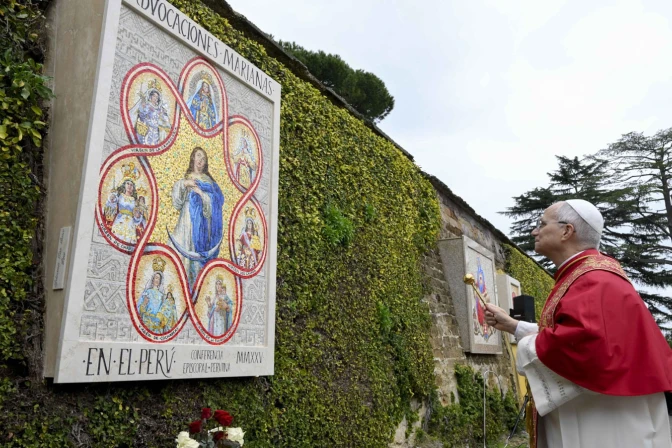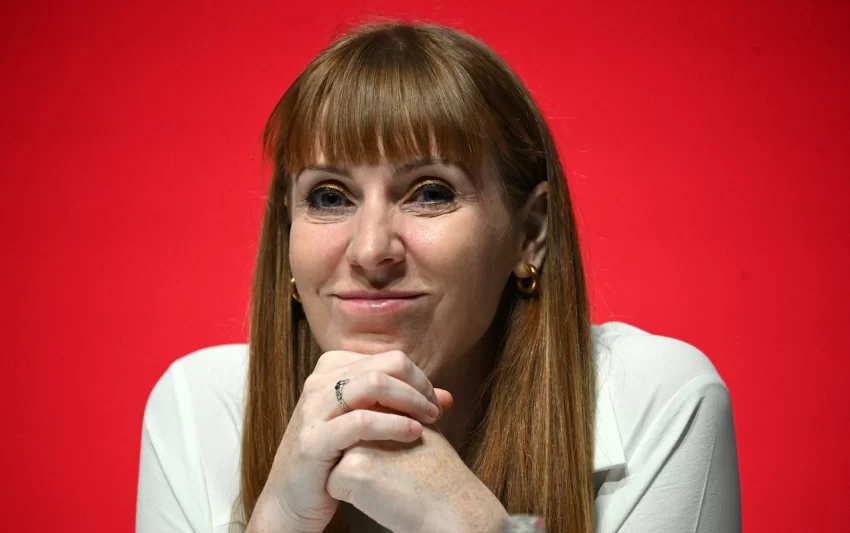Israel’s actions in Gaza look ‘very much like’ genocide, says top EU official
BRUSSELS — In one of Brussels’ strongest condemnations of Israel since the war began, a top European Union official said the starvation, displacement and killing in Gaza “looks very much” like genocide.
In comments to POLITICO’s Brussels Playbook on Thursday, European Commission Executive Vice President Teresa Ribera said: “What we are seeing is a concrete population being targeted, killed and condemned to starve to death. A concrete population is confined, with no homes — being destroyed — no food, water or medicines — being forbidden to access — and subject to bombing and shooting even when they are trying to get humanitarian aid. Any humanity is absent, and no witness[es] are allowed.”
She concluded: “If it is not genocide, it looks very much like the definition used to express its meaning.”
Israeli authorities did not reply when asked to respond.
Israel has repeatedly denied the allegation of genocide, which legally implies an intent to destroy a people, wholly or in part. The government insists it is engaged in a war of self-defense against Hamas, which it says has used the people of Gaza as human shields while cruelly holding hostage Israelis kidnapped during the militant group’s Oct. 7, 2023 attack on Israel.
The European Commission as an institution has not used the term genocide to describe Israeli actions.
In recent weeks, European countries have hardened their position toward Israel in response to dire warnings of famine in Gaza, killings at food distribution sites and threats of further escalation from the government of Benjamin Netanyahu.
But ardent critics of Israel’s conduct, like Ribera, are frustrated by the EU’s lack of concrete action to push Netanyahu and Hamas to agree on a ceasefire and for Israel to allow greater humanitarian aid flows into the devastated enclave.
Germany, Italy and other EU countries have resisted even weak measures aimed at punishing Israel, including blocking a proposal to suspend some research cooperation.
Ribera said the union should look at suspending the EU-Israel Association Agreement, which is the foundation of their trading and economic relationship.
To do so, she suggested the countries opposed to measures against Israel register their objection by abstaining from any votes on EU actions, while allowing the majority to pass them swiftly.
“Consensus is not always about unanimity in enthusiasm,” she said, in comments that were sent to POLITICO via text message. “Sometimes, it means finding room to move forward while acknowledging the concerns of those who feel cornered … Could we decide on the suspension of the association agreement and/or other measures to reach those goals through a constructive ‘non-objection’ decision?”
Sanctions, she noted, would require unanimity within the EU. But if Netanyahu did move to take full control of the Gaza strip, as reports over recent days have indicated he might, Ribera said the international community and individual countries “should use the means that could facilitate the return to compliance.”
“What … has been said and done by the Israeli authorities go far beyond the international law limits,” she added.
For now though, Germany is fixed on maintaining dialogue with Israel, rather than punishing it.
On Tuesday, a German government spokesman told reporters the humanitarian situation had “developed in a positive direction” in the past fortnight and more aid trucks were entering Gaza. Evidence to support those claims was not forthcoming and the spokesperson indicated the source of the information was Israeli President Isaac Herzog.
Shocked by the suffering in Gaza, France and the U.K. have led a recent push among some G7 countries to recognize Palestine as a state.
Ribera, whose home nation of Spain recognized the state of Palestine last year, said the measure alone did not go far enough. “Recognition is a good step forward, but it is not enough to build peace, stability and respect. It looks like a deep and long involvement of the international community will be required,” she said.
Further stasis in political decision-making would not only mean Palestinians “continue to suffer and die in unbearable conditions,” Ribera said, it would erode the moral and political underpinnings of the EU.
“This kind of paralysis only feeds disillusionment and creates fertile ground for cynicism and populism. We need to show that Europe is not just a set of institutions, but a political and moral project with the courage to respond when human lives are at stake,” she said.
Nette Nöstlinger contributed to this report from Berlin.




















:quality(85):upscale()/2023/09/18/918/n/1922398/a1136b676508baddc752f5.20098216_.jpg)
:quality(85):upscale()/2025/10/09/670/n/1922283/00b944c868e7cf4f7b79b3.95741067_.jpg)
:quality(85):upscale()/2025/10/15/765/n/1922398/29c37a6e68efd84bb02f35.49541188_.jpg)
:quality(85):upscale()/2025/09/09/891/n/1922283/7222624268c08ccba1c9a3.01436482_.png)
















